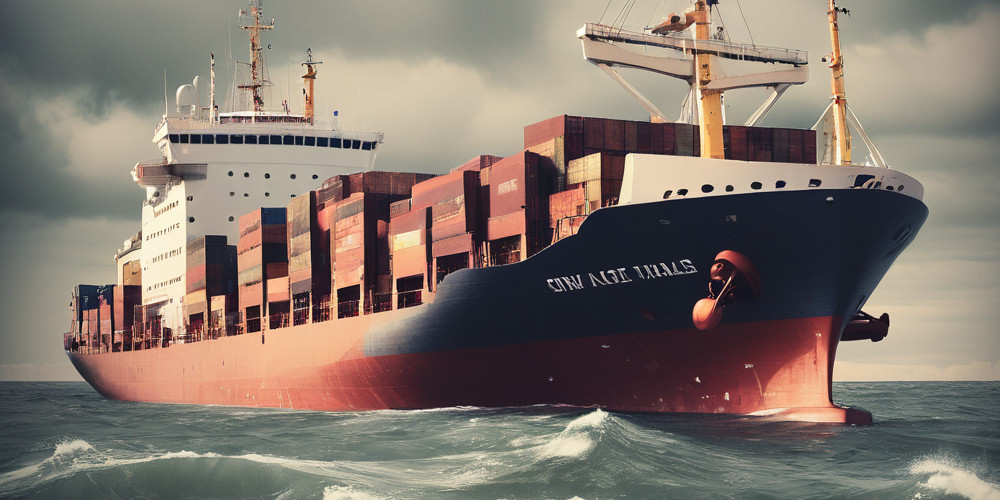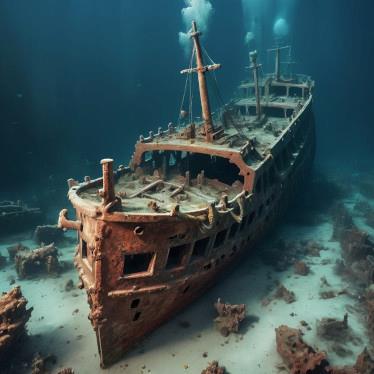
As an indispensable part of the global economy, the maritime sector forms the backbone of international trade and logistics. More than 90% of world trade is conducted by sea, making maritime transportation a critical component in the supply chain of goods worldwide.
Pillars of the Maritime Sector
Shipping and Transportation
Shipping and transportation are at the heart of the maritime sector. This includes a wide range of shipping lines, ships and sea routes connecting different parts of the world. Maritime transport is the most cost-effective way to move large quantities of goods over long distances and is crucial for the import and export of raw materials, food, manufactured goods and energy products.
Ports and Logistics
Ports serve as gateways for international trade, providing infrastructure for the loading, unloading, storage and distribution of cargo. Efficient ports and logistics services are vital for reducing bottlenecks in the supply chain and thus improving the flow of goods and materials. The role of ports extends beyond mere transit points; they are centers of economic activity, providing services such as ship repair, freight transportation and customs clearance.
Shipbuilding and Repair
The shipbuilding and repair industry is a key component of the maritime sector, responsible for the design, construction and maintenance of ships that carry global trade. This industry is vital not only to sustain the maritime fleet, but also to advance maritime technology, improve fuel efficiency and enhance safety features on ships.
Facing the Waves: Challenges in the Maritime Industry
The maritime sector navigates turbulent waters and faces various challenges that affect its efficiency and sustainability.
Environmental Impact
One of the most important challenges is the environmental impact of maritime activities. Maritime transport is a significant contributor to marine pollution and greenhouse gas emissions. The industry is under increasing pressure to adopt greener practices, such as using low-sulphur fuels, improving energy efficiency and investing in clean technologies such as electric and hydrogen-powered vessels.
Piracy and Maritime Security
Maritime banditry and maritime security remain a major concern, particularly in areas such as the Gulf of Guinea and the Strait of Malacca. Maritime banditry disrupts trade routes, endangers the lives of seafarers and increases transportation costs. Addressing these threats requires international cooperation and the implementation of stringent security measures.
Labor and Human Rights
The maritime sector is also plagued by labor and human rights issues. Seafarers often face harsh working conditions, long contracts and the risk of abandonment in foreign ports. Ensuring the welfare, rights and safety of maritime workers is vital for the ethical and sustainable development of the sector.
Charting a Course: Future Trends in the Maritime Industry
The maritime industry is at a pivotal juncture with several trends shaping its future direction.
Digitalization and Smart Shipping
Digitalization is transforming the maritime industry with the adoption of technologies such as blockchain, IoT (Internet of Things) and AI (Artificial Intelligence). These innovations are enabling smarter shipping, improved navigation, better cargo tracking and more efficient port operations.
Decarbonization and Sustainability
The push towards decarbonization and sustainability is encouraging the development of environmentally friendly ships and research into alternative fuels. The industry is working to reduce its carbon footprint and comply with international regulations aimed at protecting the marine environment.
Globalization and Trade Patterns
Globalization and changes in trade patterns are affecting sea routes and demand for maritime transport. The rise of emerging economies, shifts in production centers and changes in consumer behavior affect the flow of global trade and the strategic importance of specific maritime corridors.
The maritime sector is a cornerstone of the global economy, facilitating the flow of goods across continents and supporting economic growth. As we sail into the future, the sector faces challenges as well as opportunities for innovation and development. By embracing sustainability, digitalization and international cooperation, the maritime industry can continue to support global trade as we move towards a more efficient and environmentally friendly future.


